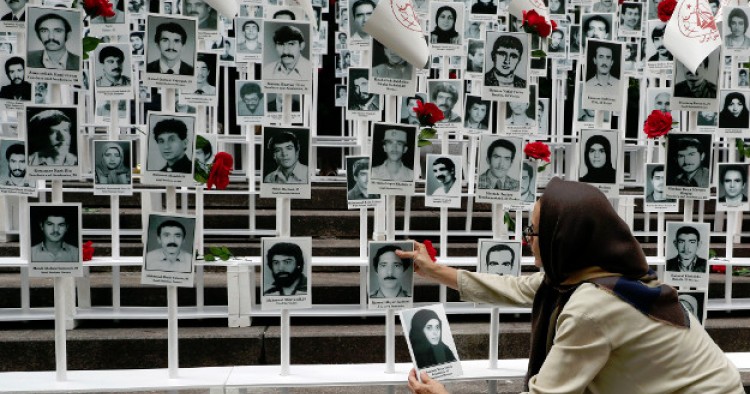Hengameh Shahidi, a reformist political activist on hunger strike in Tehran’s Evin Prison, has written a will, the Center for Human Rights in Iran (CHRI) reports. “Hengameh called me today (Saturday, April 1) and she was in very bad shape,” Nahid Kermanshahi, Shahidi’s mother told CHRI. “She has chest pains and doesn’t have the strength to walk…She said she had handed her will to the interrogator.” In the two-page letter, Shahidi has said that if she dies in the jail, President Hassan Rouhani, Intelligence Ministry and the Judiciary should be held to account. Her mother added that Shahidi refused to break his 24-day hunger strike and emphasized “I haven’t committed any crime and I won’t accept anything.” According to CHRI, Shahidi is being detained without charge and has been denied legal council.
Comment: Iranian authorities arrested Shahidi last month. She is reportedly jailed in Evin Prison’s Ward 209, a facility run by the Intelligence Ministry. It is not the first time that Iran’s security agents have arrested Shahidi. During Iran’s controversial 2009 presidential election campaign, she worked as a political advisor to then-candidate Mehdi Karroubi, one of the Green Movement leaders under house arrest in Iran since February 2011. Authorities arrested her as part of the post-election clampdown, and she was sentenced to six years in jail. But she was released after one year.
Her recent detention is also part of an aggressive crackdown by Iran’s security and judicial authorities against reformist activists and journalists in the run-up to the May 19 presidential elections. According to opposition website Kaleme, Shahidi has previously alleged that President Rouhani is silent over the latest regime crackdown on reformist activists because the Islamic Revolution Guards Corps (I.R.G.C.) has promised the president not to prosecute his younger brother Hossein Fereidun, who is accused of embezzlement and corruption. While Shahidi has not provided any evidence of a secret deal between Rouhani and the I.R.G.C., many Iranians criticize the president for not standing up to the country’s repressive judicial and security agencies to defend their rights. This may dampen the enthusiasm of reformists in the polls and adversely affect Rouhani’s bid for reelection.
The Middle East Institute (MEI) is an independent, non-partisan, non-for-profit, educational organization. It does not engage in advocacy and its scholars’ opinions are their own. MEI welcomes financial donations, but retains sole editorial control over its work and its publications reflect only the authors’ views. For a listing of MEI donors, please click here.













